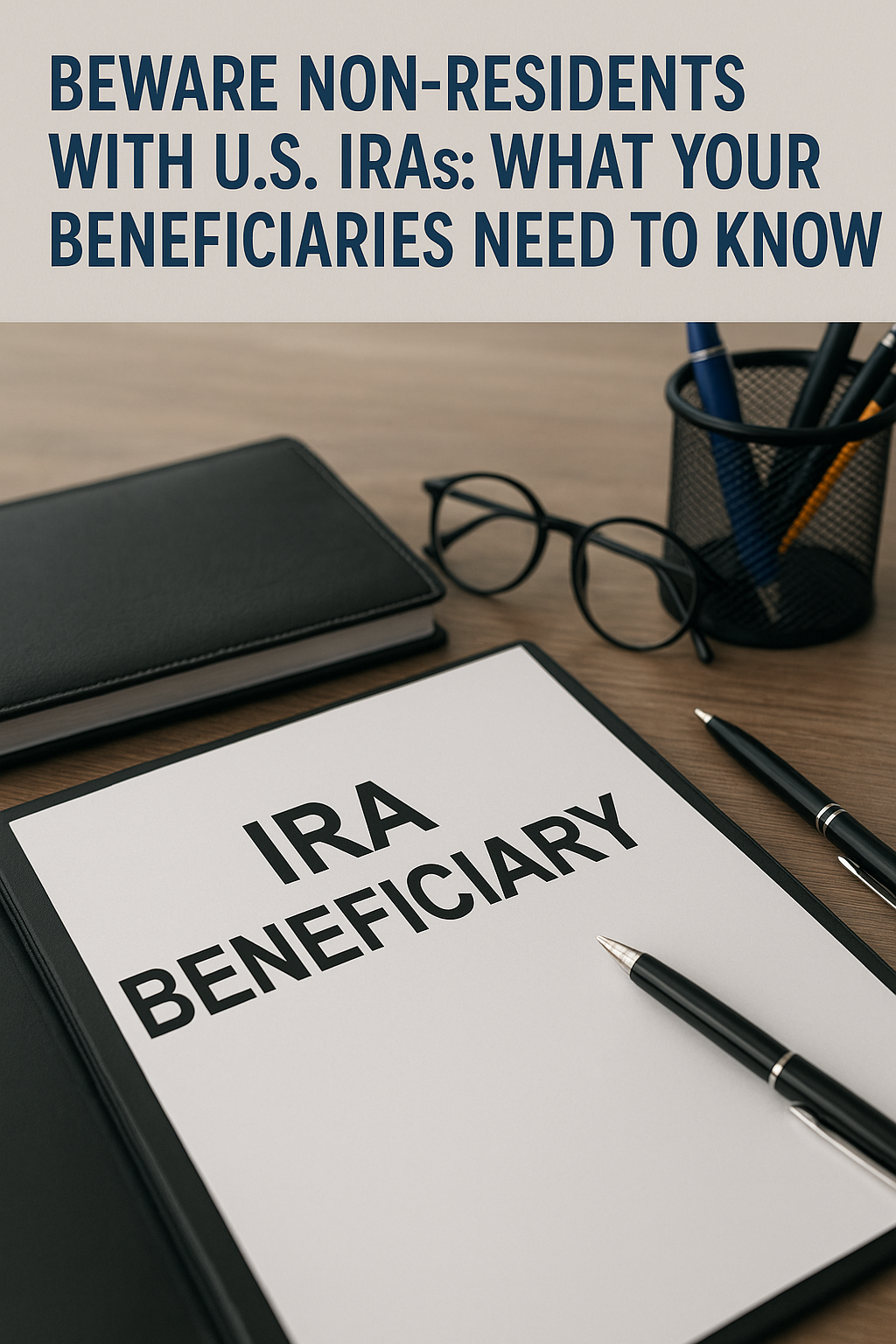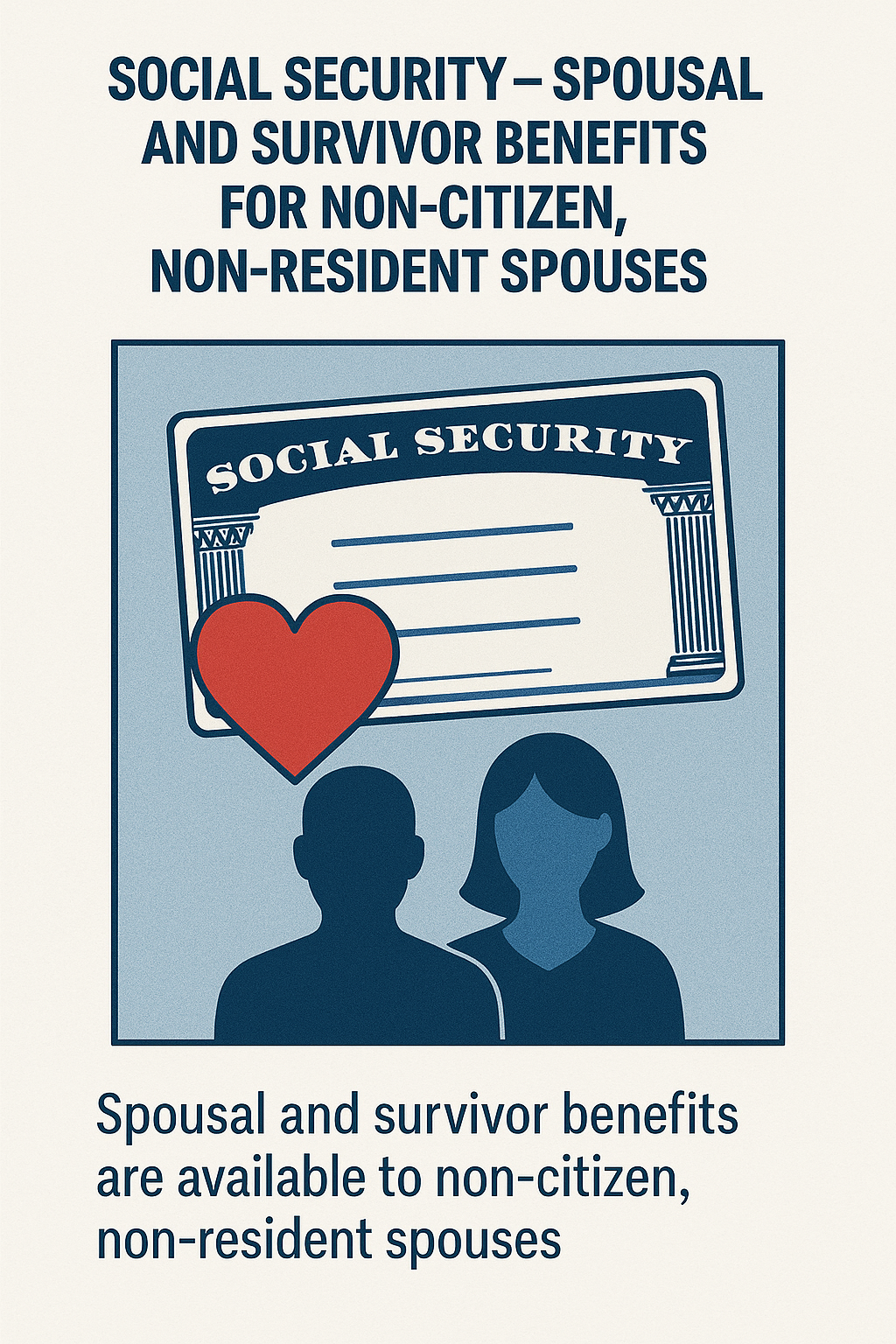Beware: Non-Residents with U.S. IRAs – What Your Beneficiaries Need to Know
For non-residents of the United States who own U.S.-based IRAs or qualified retirement accounts, there is a significant but often overlooked risk: a lengthy delay in distributing the IRA to beneficiaries after death.
If you are a non-resident non-citizen—meaning you do not live in the U.S., do not hold a Green Card, and do not meet the substantial presence test—then your U.S. IRA is subject to special estate processing rules. These rules can delay access to inherited IRA funds for years.
IRS Clearance Required Before IRA Distribution
When a non-resident dies owning a U.S.-based IRA or qualified retirement plan, the Internal Revenue Service requires the estate to file an estate tax return using Form 706-NA. This filing allows the IRS to assess whether any estate taxes are owed before the retirement account is released.
This review is necessary because the IRS wants to ensure all U.S. tax obligations are satisfied before the assets are distributed and potentially transferred beyond the reach of U.S. jurisdiction.
The custodian or retirement plan administrator will not release IRA funds until the estate receives a Transfer Certificate from the IRS, issued via Form 5173. In some cases, a non-resident income tax return (Form 1040-NR) may also be required if there was U.S.-source income in the year of death.
Delays Can Stretch Two Years or More
The process is not fast. The IRS handles estate tax returns for non-residents through a specialized unit that typically processes these filings only once per year. Returns are placed into a queue, and the division works through as many as possible during each annual review period.
As a result, beneficiaries often wait two years or more before receiving access to the inherited IRA. During that time, the assets remain locked, even if there is an urgent financial need.
Planning Considerations for Non-Resident IRA Owners
If your IRA is a major portion of your estate, particularly if it is intended to support your spouse or children immediately after your death, these delays can cause significant hardship.
To mitigate this risk, we recommend the following:
- Maintain accessible non-IRA assets. Ensure that your spouse or other beneficiaries have enough readily available funds to cover at least two years of expenses, ideally three.
- Stay current on all tax filings. Delays increase if prior-year tax returns or documentation are missing or incomplete.
- Work with a cross-border advisor. U.S. retirement accounts held by non-residents involve complex tax and estate planning issues. An advisor with expertise in both U.S. and international regulations is essential and can help you stay prepared.
- Review your beneficiary and estate plan structure. In some cases, restructuring ownership or using trusts may help mitigate delays, though these strategies must be tailored to each situation.
Protect Your Family from Avoidable Delays
At 49th Parallel Wealth Management, we help individuals and families manage the cross-border financial planning challenges that come with a cross-border lifestyle. Crossing the 49th Parallel is no easy task. If you hold a U.S. IRA and are no longer a U.S. resident, now is the time to plan ahead, before an unexpected delay disrupts your family’s financial security.
We specialize in guiding non-resident clients through U.S. tax, estate, and retirement planning. Reach out today to ensure your legacy is protected and accessible when your loved ones need it most.




